Wayne Gillespie
Springing from the Auckland acoustic scene of the early 1980s, Wayne Gillespie released a critically acclaimed self-funded album in New Zealand before crisscrossing the Tasman Sea and eventually relocating to Sydney in 1987 for the Australian release of his second album.
New Locations brought glowing reviews from the rock press in both countries, with New Zealand Herald critic Colin Hogg writing: “Gillespie’s rich, sad voice and his 10 self-penned songs shine with a dark brilliance here, a long step from the folkie flavour of Wayward Son. An outstanding record.”
For the video ‘Losing One’, director Kerry Brown borrowed a $600 jacket from an Auckland boutique. During a coffee break, a Rottweiler lunged through the window of a parked car and sunk its teeth through the jacket and Wayne Gillespie’s arm. Filming resumed after a trip to the hospital for stitches.
Wayne Gillespie - Heart's For (1987) - directed by Kerry Brown, featuring Mike Croft on saxophone.
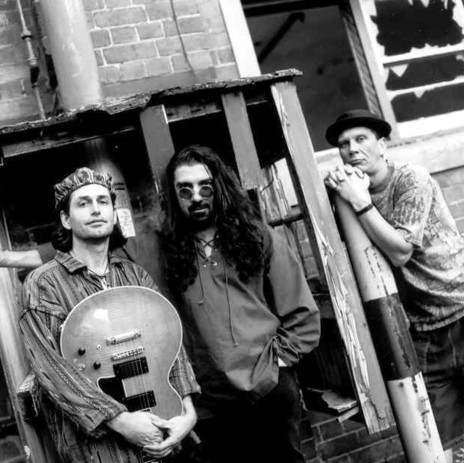
Passionfish, 1995. From left: Wayne Gillespie, Rob Grosser (drums), Peter Moloney (bass).
Photo credit:
Wendy McDougall
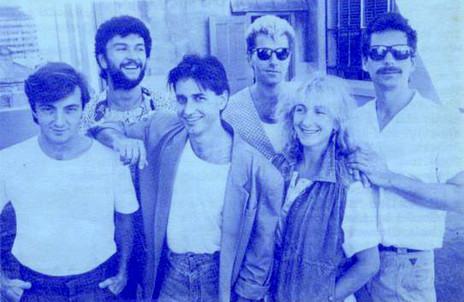
Wayne Gillespie and his band New Locations, May 1987, before his departure to Australia. Back row, L-R: Rick Robertson, Steve Clarkson, Nigel Gavin. In front, L-R: Tim Calder, Wayne Gillespie, Denny Stanway.
Photo credit:
Wayne Gillespie Collection
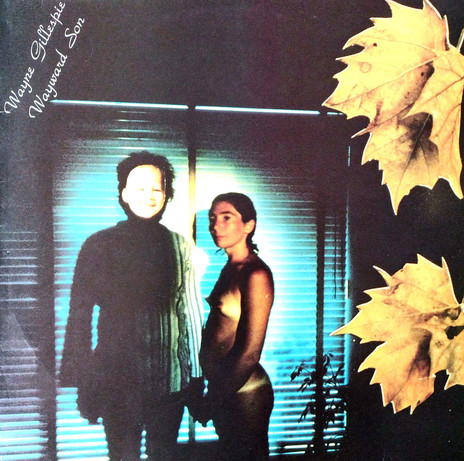
Wayne Gillespie’s debut LP, Wayward Son (Wizard Records, 1984). Self-produced, the LP featured Bob Shepheard, bass; Brendan Power, harmonicas, Denny Stanway, backing vocals. It was recorded at Azimuth and Direct Import studios. Cover photo by Leonie Reisberg.
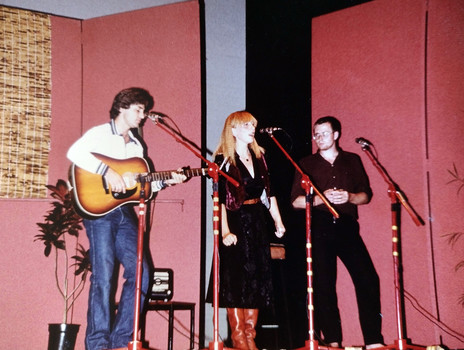
Wayne Gillespie, Denny Stanway, and Brendan Power - Maidment Theatre, University of Auckland, 1982.
Photo credit:
Wayne Gillespie Collection
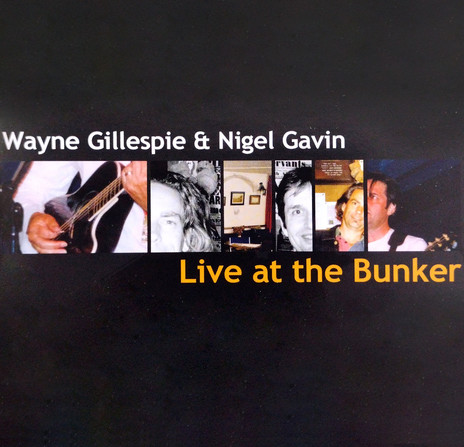
Wayne Gillespie & Nigel Gavin - Live at the Bunker (Wayward Music CD, 2005). Recorded at The Bunker, Devonport, Auckland. On a few tracks, Caitlin Smith sings backing vocals and Tony Waine plays bass.
Photo credit:
Wayne Gillespie Collection
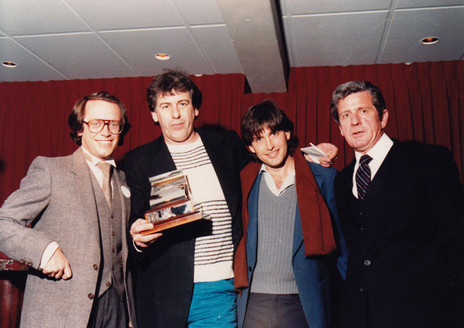
The winner of the 1984 APRA Silver Scroll was Hammond Gamble with ‘Look What Midnight’s Done To Me’. Standing next to Hammond (second from right) is Wayne Gillespie, who was presented with a special APRA Award that night for his song ‘Away With You’, because the judges had great difficulty in deciding on a winner and wished to recognise his song also. Flanking the songwriters are APRA representatives, Ray Columbus and Bernie Darby.
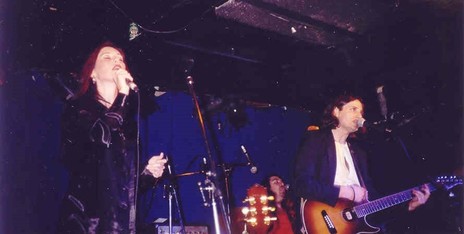
Wayne Gillespie and Margaret Urlich, performing at the Harbourside Brasserie, Sydney, November 1995
Photo credit:
Wayne Gillespie Collection
Wayne Gillespie and his band Passionfish performing the title track off Gillespie's third album Living in Exile. Filmed in 1995 at the nightclub Round Midnight in Sydney's Kings Cross with Rob Grosser on drums and Peter Maloney on bass. Audio features Margaret Urlich on BVs, Brendan Power on harmonica and Dave Sparks on guitar.
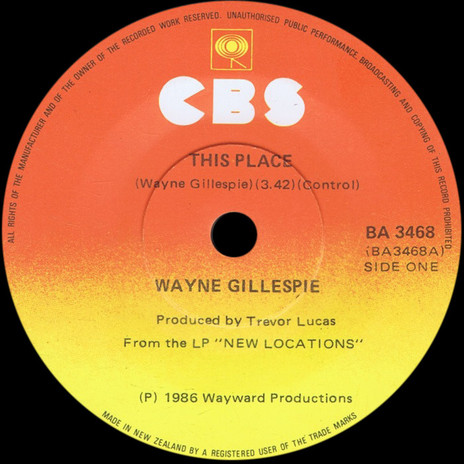
Wayne Gillespie - This Place (CBS NZ, 1986), produced by Trevor Lucas of Fairport Convention and Fotheringay.
Wayne Gillespie - Ten Francs (1984) - directed by Keith Hill in the old Auckland Railway Station.
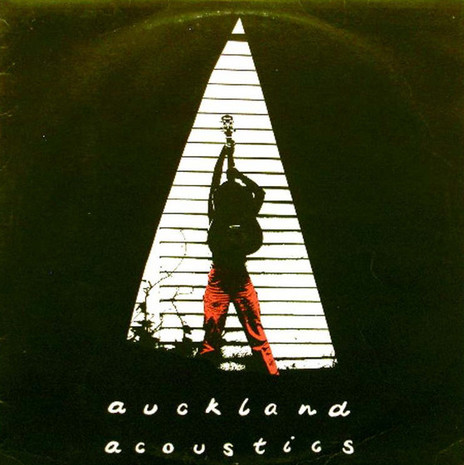
Auckland Acoustics: a compilation album recorded at Progressive Studios, Auckland, by Steve Garden, 1985. Among the artists are Mahina Tocker, Wayne Gillespie, Kathryn Tait, and Chris & Lynn Thompson.
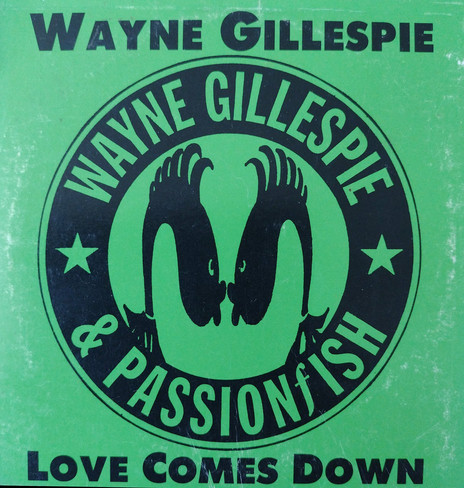
Wayne Gillespie and Passionfish EP cover, July 1995
Photo credit:
Sandra Waine
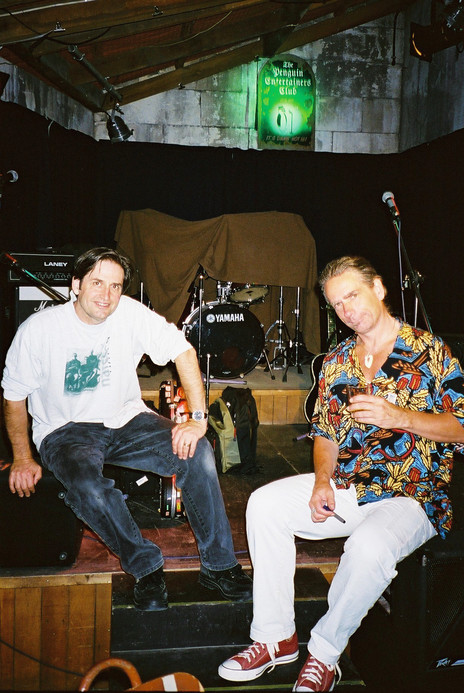
Wayne Gillespie and Nigel Gavin, Penguin Club, Oamaru 2006.
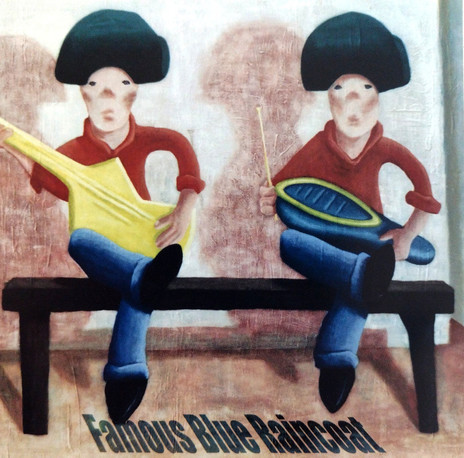
Famous Blue Raincoat EP cover, 2008
Photo credit:
Geoffrey Stapleton
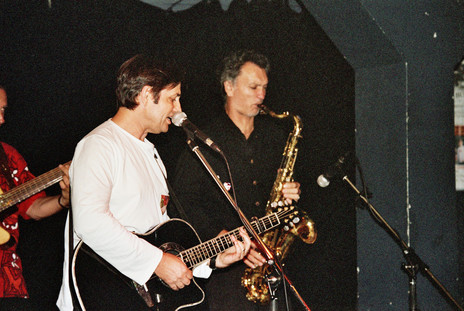
Wayne Gillespie and Rick Robertson with Nigel Gavin, at the Cat and Fiddle, Sydney 2005.
Photo credit:
Wayne Gillespie Collection
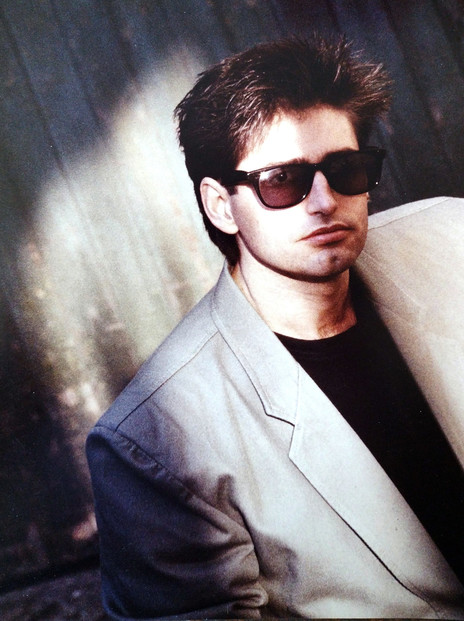
Wayne Gillespie in a 1986 promotional shot.
Photo credit:
Kerry Brown
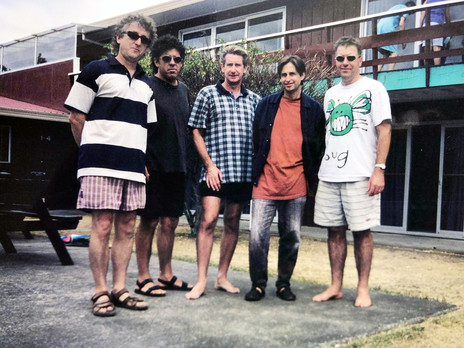
Wayne Gillespie with the Narcs, Hamilton, February 1996. From left: Tony Waine, Andy Dickson, Liam Ryan, Wayne Gillespie, Steve Clarkson.
Photo credit:
Wayne Gillespie Collection
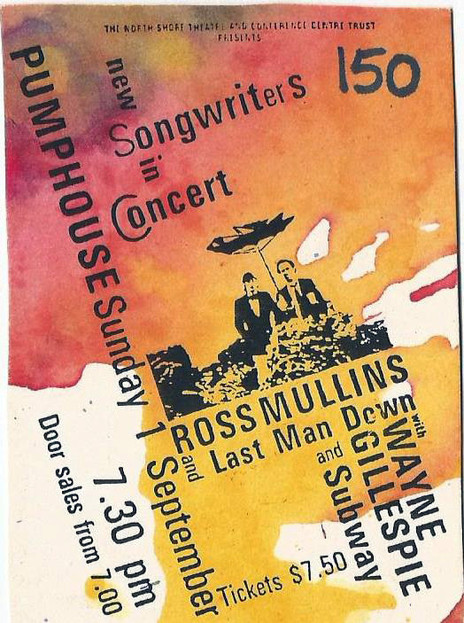
Poster for Ross Mullins and Wayne Gillespie at the Pumphouse, Takapuna, 1985.
Photo credit:
Ross Mullins collection
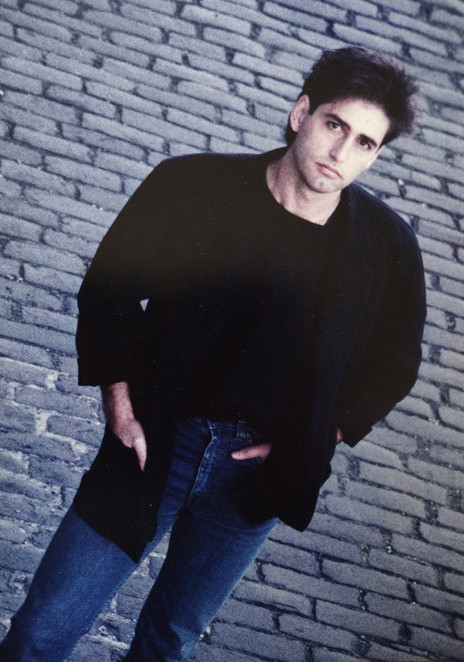
Wayne Gillespie, New Locations photo shoot, 1986.
Photo credit:
Kerry Brown
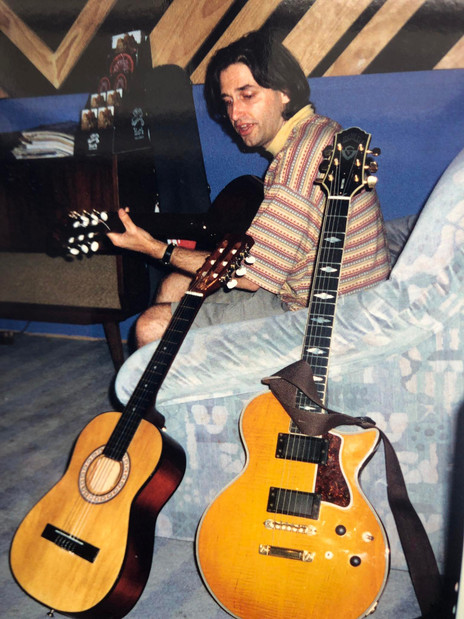
Wayne Gillespie in the studio, Hamilton, recording Push The Boat Out, 1996.
Photo credit:
Wayne Gillespie Collection
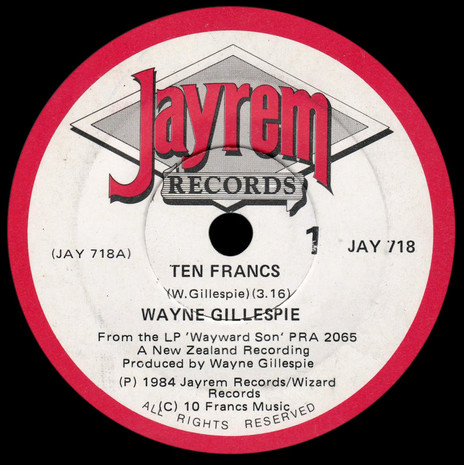
Wayne Gillespie - Ten Francs (Jayrem, 1984), from his self-produced debut album, Wayward Son. Gillespie says that without the support of James Moss of Jayrem, the Wayward Son album wouldn't have been noticed outside of Auckland.
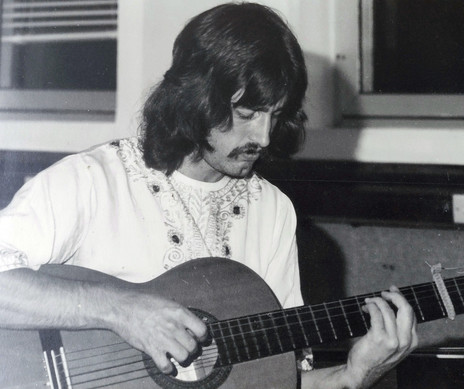
Wayne Gillespie's first gig, CIT Folk Club, Heretaunga, 1976.
Photo credit:
Wayne Gillespie Collection
The video for ‘This Place’ was by British-Australian director Stephen Hopkins. “It was his idea to build the set on the truck. We started off on the Sydney highway but got moved on. Then on the Parramatta Road the traffic was backed up for miles.” – Wayne Gillespie, Rip It Up, 1987
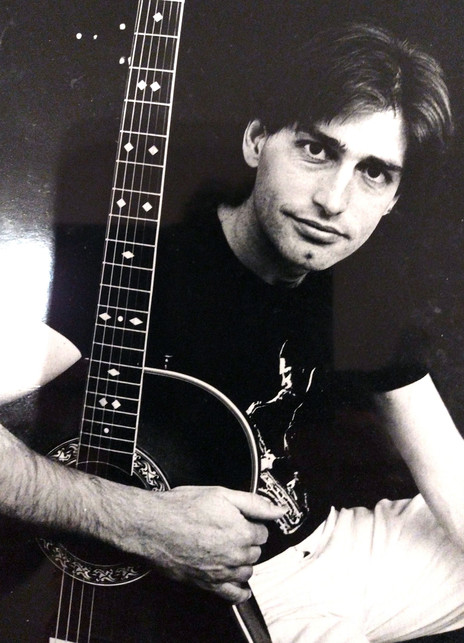
Wayne Gillespie, when Wayward Son was announced as a finalist in the NZ Music Awards, 1984
Photo credit:
Wayne Gillespie Collection
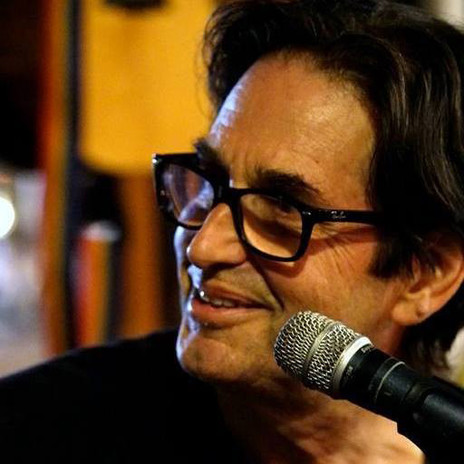
Wayne Gillespie, 121 Cafe, Auckland, 2017.
Photo credit:
Patrick Byrne
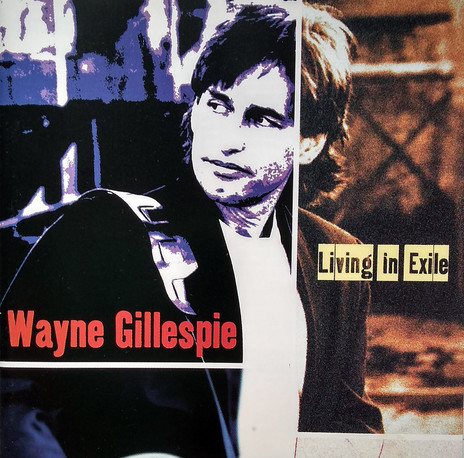
Wayne Gillespie - Living in Exile (Ravenswood CD, 1995).
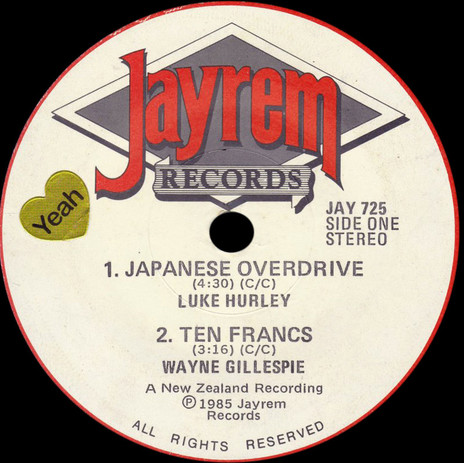
Wayne Gillespie's '10 Francs', shared on a 7" EP with tracks by Luke Hurley (Jayrem, 1985)
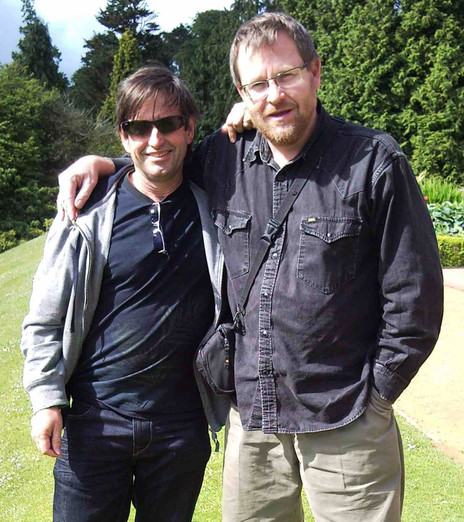
Brendan Power with Wayne Gillespie, Ireland, 2009
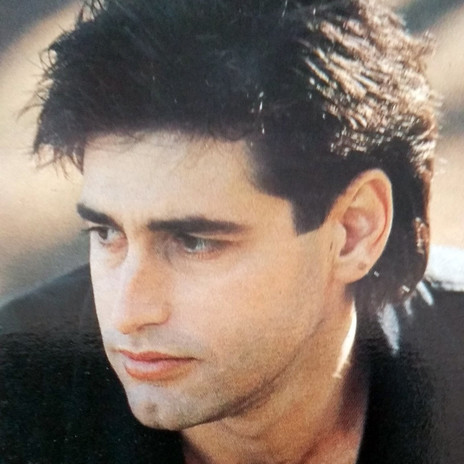
Wayne Gillespie, New Locations photo shoot, 1986.
Photo credit:
Kerry Brown
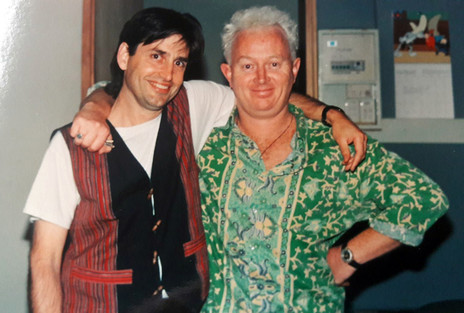
Wayne Gillespie and Dave Dobbyn at Trackdown Studios during the recording of Living in Exile, Sydney, c. 1993.
Photo credit:
Wayne Gillespie Collection
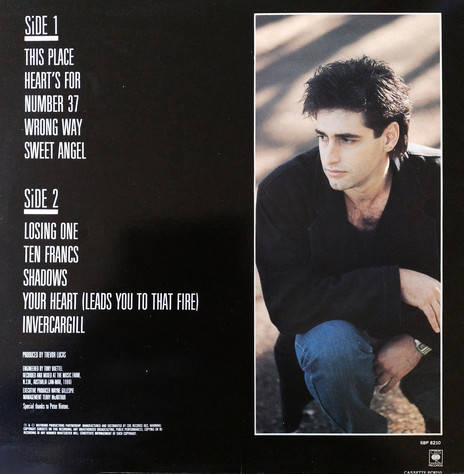
Wayne Gillespie, back cover of New Locations (CBS NZ, 1986)
Photo credit:
Kerry Brown
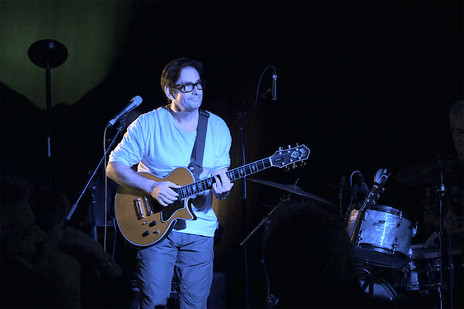
Wayne Gillespie, Mt Eden Village, Auckland, 7 April 2017.
Photo credit:
Patrick Byrne
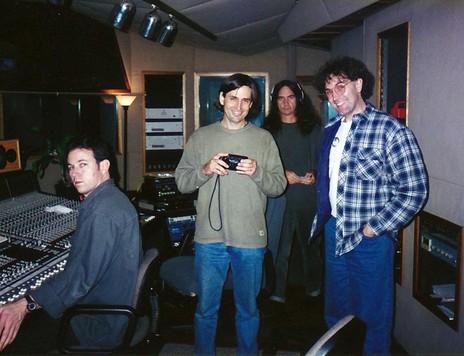
Mixing The Narcs' Push the Boat Out album at Eclipse Studios in Sydney, 1996: Brent Clark, Wayne Gillespie, unknown and Zed Brookes
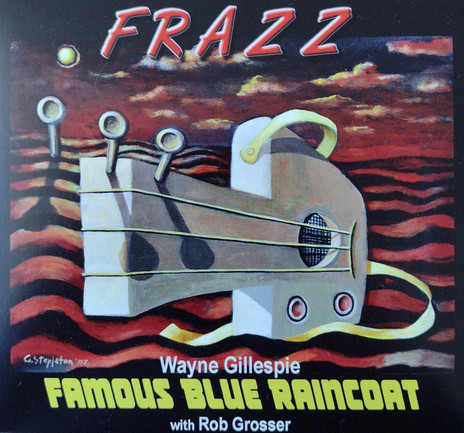
FRAZZ front cover, August 2022.
Photo credit:
Geoffrey Stapleton
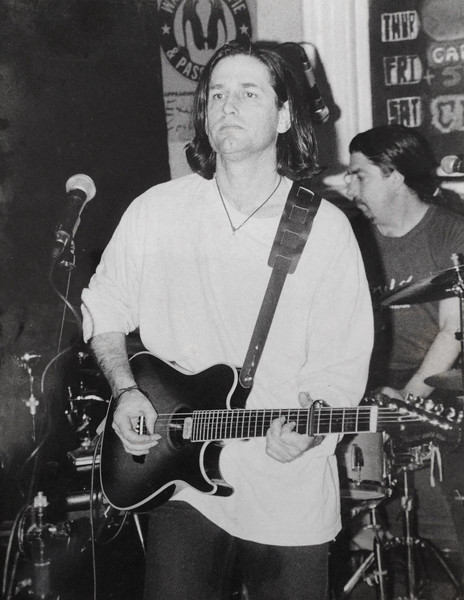
Wayne Gillespie performing with Passionfish at the Excelsior Hotel, Sydney, 1994; the drummer is Rob Grosser.
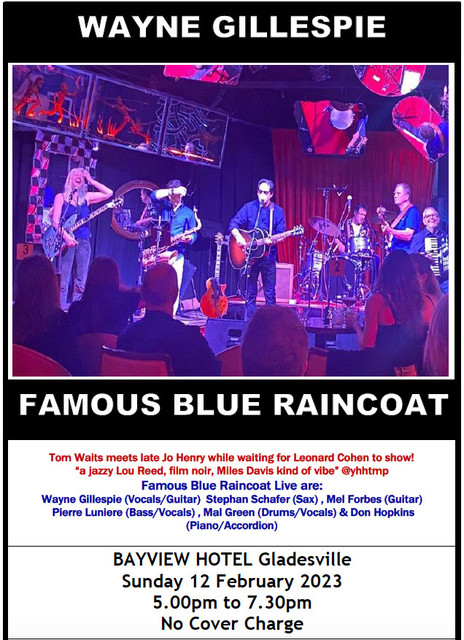
Wayne Gillespie: a poster for a February 2023 gig at the Bayview Hotel, Gladesville, west Sydney: "A jazzy Lou Reed, film noir Miles Davis, kind of vibe." On drums is former Split Enz member Mal Green.
Photo credit:
Wayne Gillespie Collection
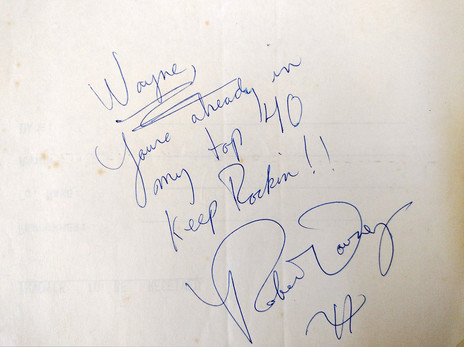
Wayne Gillespie's note from fan Robert Downey Jr., 1988.
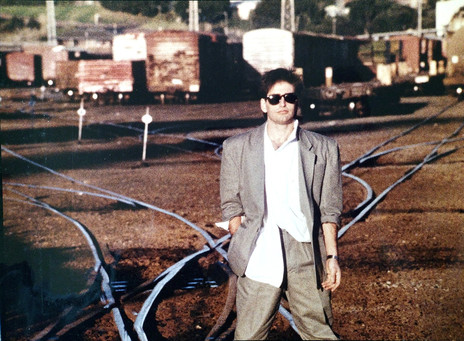
Wayne Gillespie, New Locations photo shoot, Auckland, 1986.
Photo credit:
Kerry Brown
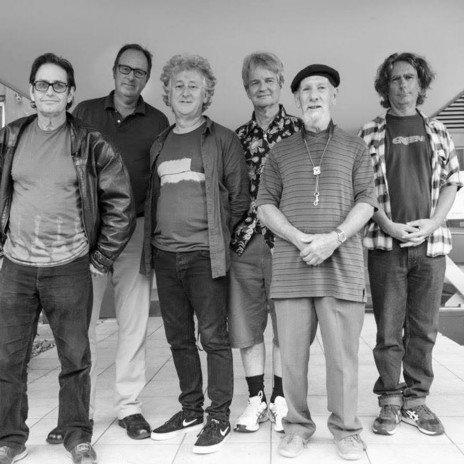
Wayne Gillespie and band, 2017. From left: Wayne Gillespie, David Lines, Tony Waine, Paul Crowther, Jim Langabeer, Nigel Gavin
Photo credit:
Wayne Gillies
Discography




